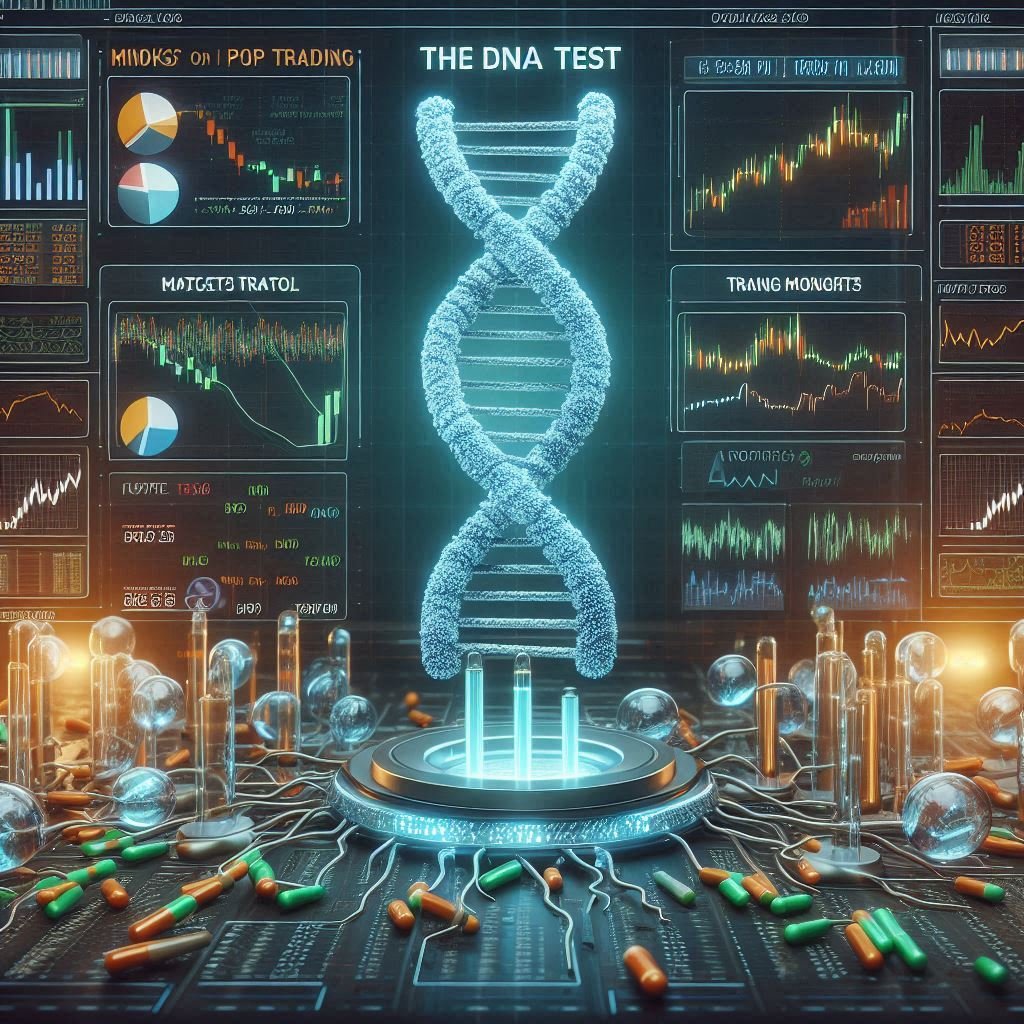Imagine assembling an elite squad for a critical space mission. One crew member must navigate cosmic storms with calm precision. Another must make lightning-fast decisions under pressure. A third must patiently monitor life support systems for weeks without blinking. Would you assign roles randomly? Of course not.

You would first run psychometric evaluations—to understand how each mind works under pressure, what drives it, where it shines, and where it may crack.
Now, bring this concept down to earth—and into the world of prop trading, where the stakes are just as high, and the battlefield is just as demanding.
Welcome to Psychometric Trader Profiling: the science of decoding a trader’s mental fingerprint to optimize their role, risk profile, and strategic alignment in a proprietary trading environment.
Trading Is Not One Size Fits All
Not all traders are built the same. Some thrive in chaos, living for the adrenaline of volatility spikes. Others excel in calm, grinding out steady returns with stoic discipline. Some can handle ten positions simultaneously; others need focus and silence.

Yet in many trading firms, everyone is handed similar tools, strategies, and expectations. This is like giving the same sword to a sniper, a scout, and a diplomat—and expecting identical results.
Prop trading, at its peak, refuses that kind of laziness. Instead, it asks: Who is this trader, really? That’s where psychometric profiling begins.
The Mind Behind the Monitor
Psychometric Trader Profiling is not about labeling traders—it’s about unlocking their natural edge. Through tools like:
- Cognitive load tests
- Risk aversion diagnostics
- Pattern recognition scores
- Emotional resilience assessments
- Decision-making speed and confidence under uncertainty
firms begin to map each trader’s psychological DNA.
And with that map, prop trading desks can assign not just strategies—but identities.
A high-volatility thinker may be steered toward options scalping. A slow-burn analytical mind might shine in statistical arbitrage. An emotionally detached risk-taker could thrive in event-driven plays.
Objection 1:
“Isn’t this too theoretical? Aren’t markets more about numbers than psychology?”
Response:
Markets are numbers. But traders are not. And if the human is the operator of the machine, understanding the human is just as critical as understanding the code.
In prop trading, especially in discretionary or hybrid environments, the trader is not a passive observer—they are the decision engine. If you can calibrate that engine better, you get more consistent performance with less psychological wear.
Objection 2:
“Won’t this profiling limit a trader’s growth? What if they want to try new things?”
Response:
Psychometric profiling isn’t a cage—it’s a launchpad. It gives traders self-awareness about their strengths and blind spots. A trader who knows they’re prone to revenge trading under stress can build safeguards. One who excels at long-term pattern detection might transition from scalping to swing trading more effectively.
For prop trading firms, this reduces failure rates, sharpens performance, and enables targeted mentorship. It’s not about boxing traders in—it’s about lighting the runway where they’ll take off fastest.
The Orchestra Metaphor
Picture a prop trading firm as a grand orchestra. The market is the ever-shifting sheet music. The traders? Instruments.
Would you hand a trumpet to a violinist? Would you ask the cellist to lead percussion?
Psychometric Trader Profiling is the conductor’s handbook—ensuring each trader is not only playing the right notes but doing so in the role that suits their inner rhythm.
Strategic Edge for Prop Trading Firms
The best prop trading desks don’t just hire talent. They deploy it strategically.
By incorporating psychometric profiling:
- Onboarding is smoother
- Burnout is reduced
- Capital is allocated with surgical precision
- Role-to-mindset alignment leads to performance sustainability
The result? A team not just built for profit, but for longevity, cohesion, and compounding wisdom.
Markets test your systems. But they also test your mind. And in a world where milliseconds count and pressure is relentless, knowing who’s behind the screen is no longer optional—it’s a competitive advantage.
Psychometric Trader Profiling is the personality compass of modern prop trading—turning instinct into insight, and talent into tailored precision.
Because when traders are in sync with their strengths, they don’t just trade better. They become unstoppable.




